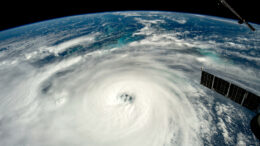Like the fires that displaced many Westerners two years ago, Hurricanes Ian and Fiona have left citizens in the Southeast with more than a few challenges — including finding out how and where to vote.
Puerto Rico got slammed hardest this hurricane season, but the territory doesn’t have any major races this November. That means the people of Puerto Rico can concentrate on recovery (again). For future reference, any disasters during voting periods could fall under “provisions of the Code on Early Voting (Article 9.37) and the power of the president to add categories when there is an emergency declaration (Article 3.4),” says Griselle López Díaz, director of communications for the Commission on Elections.
Farther north, Florida has published a web page of Hurricane Ian election resources, including information on how to find polling places and how to contact county election supervisors if you can no longer receive vote-by-mail ballots at your address of record.
Georgia doesn’t anticipate any voting problems from the hurricanes, says Robert Sinners, communications director for the Georgia secretary of state. “However, we do have a number of mobile voting units which are on standby in case of emergency,” he adds. “We deployed them to Bryan County after a recent tornado in the May primary.” (It’s worth noting that state legislators previously proposed a bill to that would make it almost impossible to deploy mobile voting.)
Finally, South Carolina — whose official voting motto is “no excuses” — has an absentee ballot process that will work for any voters still facing problems. “They can apply up to Oct. 28, just like the normal vote-by-mail process for absentee, and can get the ballot anywhere,” says John Michael Catalano, who oversees voter education outreach for the South Carolina State Election Commission.
Regardless of which state or territory you live in, experts say it’s always a good idea to have voting contingency plans in place, especially with future disasters likely to get both worse and more frequent due to climate change.
![]()
Previously in The Revelator:
30 Ways Environmentalists Can Participate in Democracy


